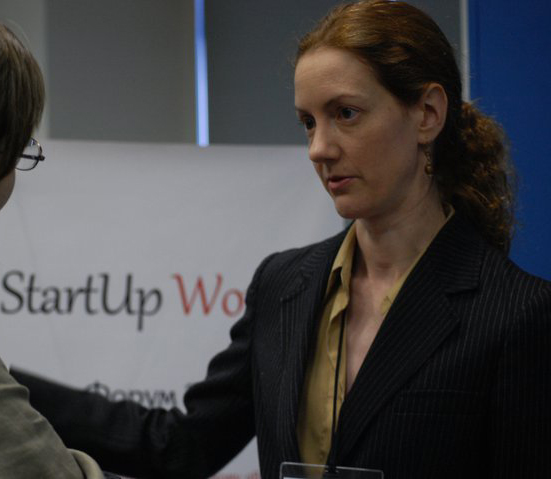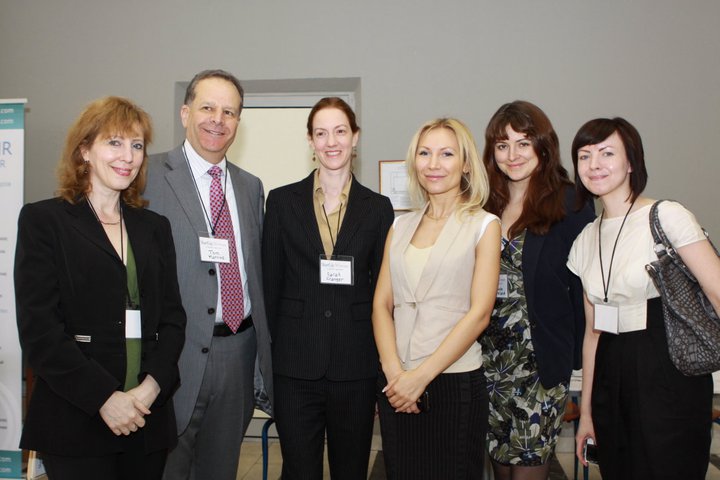Archive for Апрель, 2011
 I would like to tell you more about my project StartupAfisha and initiative that we’ve started and it seems to be really effective – the most complete and open events calendar for entrepreneurs. From now on any entrepreneur is able to check any events in his business area he needs, he could find an event where he could present his startup, find partners or gather a team he is in need until of, or find a VC’s to get investments in startup. The geography of events is quite big starting from Russian events (not only Moscow and St. Petersburg bet also all regions of the country), Ukraine, Belorussia, USA and Europe.
I would like to tell you more about my project StartupAfisha and initiative that we’ve started and it seems to be really effective – the most complete and open events calendar for entrepreneurs. From now on any entrepreneur is able to check any events in his business area he needs, he could find an event where he could present his startup, find partners or gather a team he is in need until of, or find a VC’s to get investments in startup. The geography of events is quite big starting from Russian events (not only Moscow and St. Petersburg bet also all regions of the country), Ukraine, Belorussia, USA and Europe.
The biggest problem for Russian startup-community is lack of single platform for all of the events in regions. And market had a big demand for such platform. We are using the mixed model on our Startup Afisha: there is an open calendar of events and newsletter with information on closed events, competitions, tenders and grants, trainings and workshops. Moreover our subscribers are having an opportunity to get a significant discount on events of our partners around the world.
A lot of people ask me “what event we could visit?”, “how can I find a team?”, “where I can show my project?”. And I decided to unite all of them in one calendar of events. Our mission is to unite all of the community-leaders at one place, to inform them and make their jobs a lot more effective. The project has its own narrow niche and has its own target audience at partner countries and excellent growth prospects. I consider Startup Afisha as the crowdsourcing project. Some services at Startup Afisha are being created by the representatives of startup-community. I believe that crowdsourcing model could be really effective.
In addition to calendar we have a list of important services:
- communities and innovation leaders guide;
- Job service which can help you find a team for your startup;
- Startup-school section – contains practical information for entrepreneurs;
- Recommended books and some more initiatives
The short term mission of Startup Afisha is to develop the partnership between communities and events, so the entrepreneurs would be able to take part in events with discounts, use the crowdsourcing model of project development, involve the community and opinion leaders in the regions to collaborate with Startup Afisha, create club-history and to integrate into international startup-communities.
The project has been launched in December 2010 and now serves as a single entry-point for all entrepreneurs, investors and organizers of startup-activities in Russia.
Web page of the project — http://startupafisha.ru
Facebook page — http://www.facebook.com/StartUpAfisha
Twitter account — @startupafisha
As you might know as part of my initiative on e-government development I’m running the Gov2Project — the government projects and social government initiatives incubator in Russia.
And from now on we start the brand new series of Worldwide Gov 2.0 Digest on the blog pages.
I advice all of you interested in the e-government development to follow the @gov2project on twitter and visit our Facebook page — Gov2Project
 Sarah Granger — successful entrepreneur, web-innovator and author of dozens of publications — was an invited speaker from the USA to take part in Startup Women Forum that took place in the beginning of April 2011. After the Forum she shared her impressions with local and foreign media. And now I’m sharing the story with you…
Sarah Granger — successful entrepreneur, web-innovator and author of dozens of publications — was an invited speaker from the USA to take part in Startup Women Forum that took place in the beginning of April 2011. After the Forum she shared her impressions with local and foreign media. And now I’m sharing the story with you…
Puffed sounds of “I Left My Heart inSan Francisco” were filling the air of the conference-hall. The picture looked familiar to me: the hall was full of participants, mainly women with smartphones and designer purses, who were drinking coffee and sharing talks. It was hard to believe I was in Moscow again. Last time I had been inMoscow in 1989 when Soviet military troops had surrounded the Red Square and the lines for the bathroom tissue had been blocks length. This time I was not as a tourist in the country. I was invited as a speaker to the first innovative forum for Russian entrepreneurs – Startup Women.
Within the recent Government21 conference in Moscow we are publishing an interview with Alan Silberberg — founder and CEO of Silberberg Innovations. Speaker at the panel discussion on the Government21 Conference. We were discussing the Gov2.0 future and Open government Experience in USA.
Watch the video below:
March, 2011 – April 14, 2011
Network of Justice. Rules of online filing claims has been approved. The Supreme Arbitration Court has developed a temporary regulation lawsuits filing claims over the Internet. The new system is called “My referee”. This service allows you to initiate the process, further documents must be submitted in paper form. The court will process the application in about two days, and either accept it or send a refusal.
New multifunctional center of government services has been opened in Jurga, Kemerov region.
Municipal authorities and the regional department of information technologies examined similar structures in other regions (There are more than 166 similar centers in Russia) and tried to adopt the best practices in their center. You can keep track of the stage and verify the date of execution of a document online.
Regions of the Volga Federal District are creating the unified database of electronic projects — document management, electronic charts and receptions — to freely use the inventions of each other. To date, each region solves three problems by itself: the creation of electronic documents, e-government services portal and e-cards citizens. Region government leaders decided that regions are wasting moneys in no vain by creating own versions of e-government and now starts to create the unified database. continue reading
RIA Novosti published my interview about recent Startup Women Forum and women entrepreneurship movement.
After my visit to “Women 2.0” in the Valley I thought, why shouldn’t we arrange something like that in our country. SoI talked to Maria Kosenkova : always wanted to work with her on some joint project. Dictum – factum. The first Startup Women Forum was conducted in April 2011. We didn’t suppose to have a conference, and the idea of the procedure was like that: series of workshops at once, contest, projects selection, project development. Let’s say, a sort of a virtual incubator. However, after a while we understood that we did everything right. There is a lack of communication in our country. I don’t mean parochial snobbish conversations, but talks on business and with people who have real stories of success.
 I’m very glad that “star speakers” attended the event. It seems to me, we gathered real cases and practitioners’ pieces of advice. We’re very grateful to them. It is perfect that there was interaction with the audience. We’ve got lots of positive feedback from many people saying that the conference was very clear and practical. That’s what we strived for.
I’m very glad that “star speakers” attended the event. It seems to me, we gathered real cases and practitioners’ pieces of advice. We’re very grateful to them. It is perfect that there was interaction with the audience. We’ve got lots of positive feedback from many people saying that the conference was very clear and practical. That’s what we strived for.
The whole programme followed the plan, such as: one’s brief bio, own example of a start-up, was it successful or not, and why; the project story; answering the questions of the audience. During the first session I asked who the participants were, and it turned out that many of them resigned their positions in large companies and decided to start their own business.
We were just discussing that in the country where a large proportion of the population is female and where the big business is runmostly by men, the fact that small and medium businesses are started and run by women is quite justified. Moreover, it’s more logical to do business on the Internet because of low entry barrier and project dependence on the team. And HR is mostly for women, the percentage of intuitive decision making is high, like “to do or not to do; to trust or not to trust”. Also one should consider the fact that the female audience of the Web is increasing. This means that end consumers often turn to be women.
 Imagine you are a pro-democracy protester on the streets of a repressive government. You’ve got your cellphone and you are messaging your friends. In the crowd near you, the police start making arrests. Fearing the government will confiscate your phone and investigate your contacts, you push a “panic button” on your phone. It deletes the contacts in your address book and sends out an alert. Such an app wasn’t readily available so the U.S. State Department, acting as a venture capitalist, decided to build one.
Imagine you are a pro-democracy protester on the streets of a repressive government. You’ve got your cellphone and you are messaging your friends. In the crowd near you, the police start making arrests. Fearing the government will confiscate your phone and investigate your contacts, you push a “panic button” on your phone. It deletes the contacts in your address book and sends out an alert. Such an app wasn’t readily available so the U.S. State Department, acting as a venture capitalist, decided to build one.
The State Department government funded work is underway to build an Android version of this “panic button” app. No release date has been set. Another version designed to work on low-cost Nokia phones, more common in the developing world, is being considered. No iPhone app is planned for now.
The special app, first reported by Reuters, is part of an initiative to promote new technologies for social activists. So far, the State Department has funded $22 million in “Internet freedom programming.” The money goes to innovators in the form of small grants ranging from a few to tens of thousands of dollars.
An open, competitive bid process was used to award the grants. While the government isn’t looking for more help building these apps, they may have future projects designed to advance “Internet Freedom” in other ways. Keep an eye on www.grants.gov for any additional info. Some of the past program objectives have included developing technology “to enable users in closed societies to get around firewalls and filters in acutely hostile Internet environments” and training bloggers and activists to safely and anonymously participate in online forums. continue reading
 The United States government has made its IT Dashboard, a cost-cutting tool for federal transparency, freely available for anyone, especially other governments, to use and customize.
The United States government has made its IT Dashboard, a cost-cutting tool for federal transparency, freely available for anyone, especially other governments, to use and customize.
The IT Dashboard gives citizens important information on how the government uses tax money for technology initiatives across various agencies. Citizens can see how government investments are paying off, and they can compare types of IT spending over time by accessing easy-to-reach charts and graphs.
But this clarity of and access to vital information isn’t just good for citizens; it’s also used by the Federal Government, including Congress, to make important decisions about IT budgets and spending. Open-sourcing this cost-saving tool is part of the government’s larger plan to save on IT by eliminating redundant efforts. In other words, the IT Dashboard already exists and has been paid for, and the government isn’t going to hide that light under a bushel.
Here’s a video demonstrating some of the features of the federal IT Dashboard:
The government is working with Code for America for this release. In the announcement, CfA said, “The IT Dashboard was a major component of the process the Federal Government employed to save over $3 billion in just its first two years of deployment.”
In addition to the Dashboard, the government is also open-sourcing the complementary TechStat Toolkit, a set of tools and processes for reviewing any yellow or red flags that might pop up while using the Dashboard.
In this video, U.S. CIO Vivek Kundra talks about the results the government has seen by using the IT Dashboard and how those results were achieved:
But open-sourcing something like this isn’t a cakewalk. The government worked with FOSS and government experts, Code for America and CfA’s Civic Commons project to get the job done.
Project lead Karl Fogel wrote on the Civic Commons blog, “We knew from the beginning that a high-profile project can’t be open sourced casually. It’s not enough to just put an open license on the code, move development out to a publicly visible repository, and call it done.”
He continued to note that for the Dashboard, Civic Commons had to ensure that all the code and documentation was safe for public use (i.e., not classified or a government secret) and audit the code; reduce dependencies on proprietary libraries; write documentation; ceate non-sensitive, non-classified sample data; work with the Drupal community; and much more.
Interested parties can download the Dashboard code now at SourceForge. While the Dashboard is intended to help governments cut costs and manage IT budgets, we can see such tools coming in handy at just about any large company, tech or otherwise.
via Mashable







